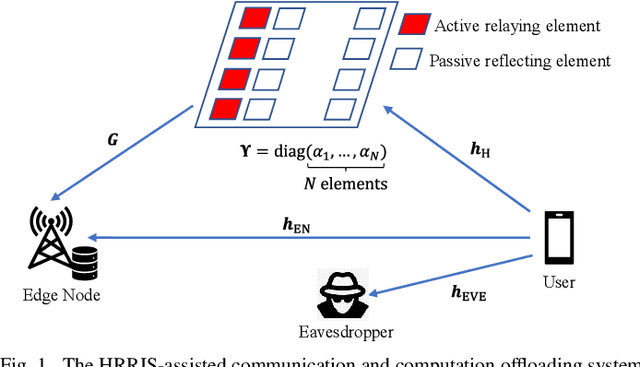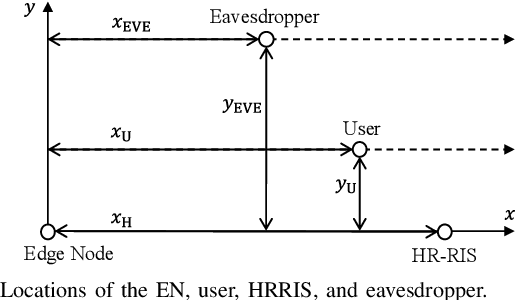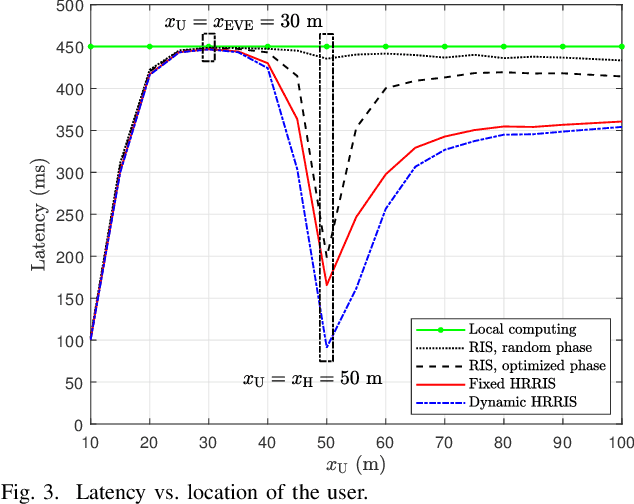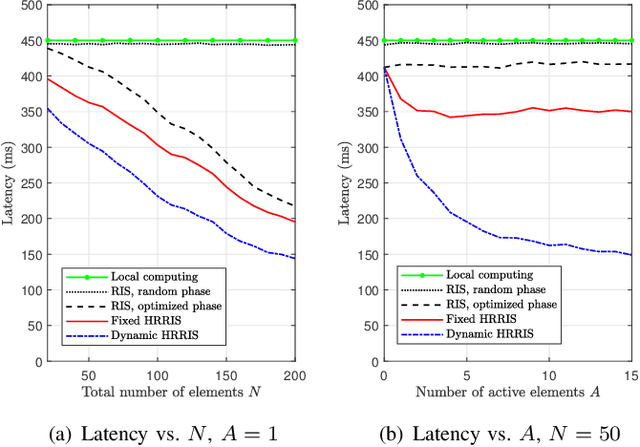Trong-Minh Hoang
Low-Latency and Secure Computation Offloading Assisted by Hybrid Relay-Reflecting Intelligent Surface
Sep 03, 2021



Abstract:Recently, the hybrid relay-reflecting intelligent surface (HRRIS) has been introduced as a spectral- and energy-efficient architecture to assist wireless communication systems. In the HRRIS, a single or few active relay elements are deployed along with a large number of passive reflecting elements, allowing it to not only reflect but also amplify the incident signals. In this work, we investigate the potential of the HRRIS in aiding the computation offloading in a single-user mobile edge computing system. The objective is to minimize the offloading latency while ensuring the secrecy of user data against a malicious eavesdropper. We develop efficient solutions to this latency minimization problem based on alternating optimization. Through numerical results, we show that the deployment of the HRRIS can result in a considerable reduction in latency. Furthermore, the latency reduction gain offered by the HRRIS is much more significant than that of the conventional reconfigurable intelligent surface (RIS).
 Add to Chrome
Add to Chrome Add to Firefox
Add to Firefox Add to Edge
Add to Edge